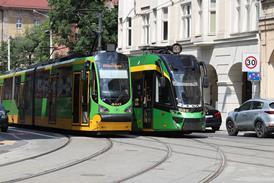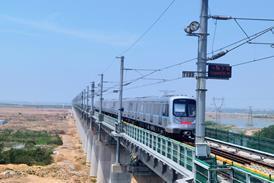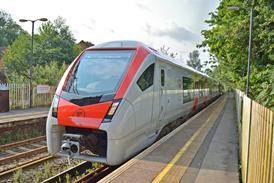INTRO: UITP Secretary General Pierre Laconte warns that consortia formed to design, build and fund light rail projects must have operating expertise available from the start or court financial disaster
THERE SEEMS little doubt that cities will face increasing difficulties in raising funds from traditional state sources for major light rail projects. In this context the International Union of Public Transport has found that there is a growing interest in the public-private sector partnerships put together in Great Britain to get light rail and other railway projects off the ground. Valuable lessons have been learnt in the success of Manchester and in the problems that afflicted Sheffield, while the projects now under way in the West Midlands and in Croydon (p165) offer further examples for other cities to study.
UITP Secretary General Pierre Laconte suggests that the consortia formed in Britain to get light rail projects going ’contradict the traditional story of public-private partnerships where the private sector gets guaranteed profits and the public sector covers the risk.’ But he warns that the promoters of light rail projects ’have had considerable difficulty in satisfying the British Treasury that there is an "adequate" transfer of risk to the private sector.’
Asked if he thinks that private sector funding has helped reduce the capital cost of light rail, Laconte says it is vital for any project ’to look at costs and revenue in a life-cycle perspective which requires the most reliable, proven technology and easy maintenance’. He says that private sector operators may take a longer term financial view, and that their involvement should ensure clearer objectives.
Laconte says that public-private sector partnerships need ’a high level of management expertise from both sides, especially where long-term contracts entailing large capital investments are involved.’ It is important that authorities define clearly which risks are to be borne by the private sector, while political risks such as public enquiries and safety requirements should be settled by the authority at an early stage in the bidding process.
Perhaps most fundamental for success is to have a consortium in which the operator plays a leading role right from the start: ’successful consortia are geared towards a full life-cycle stewardship of the project in which the costs can be properly evaluated. Laconte cites the success of the French motorway company Cofiroute as something to emulate: ’it has a long-term interest in making money, perhaps over 30 years, and it does not make its profit on the building process. Each section is built by the lowest tenderer, and Cofiroute concentrates on the best possible operations - avoiding fraud and making good facilities available for motorists. Where projects have been initiated by subsidiaries of construction companies, they have often ended up losing money while the contractors have made short-term profits.’
A serious danger is for the operator to be left with infrastructure that is difficult to operate because the consortium in charge has no operating culture or experience. OrlyVAL in France, for example, is a ’pure showpiece project for Matra’, says Laconte, who contrasts the line with VAL in Lille - also built by Matra - where the operator was in charge of the project. ’The operational difficulties associated with traffic congestion and excessive city centre parking provision must not be underestimated. Only by addressing them head-on will more people be attracted to use new public transport facilities’, he says.
While Britain’s experience may seem largely irrelevant to light rail planners and operators in Germany, Laconte believes that ’things will start to happen in 1998 as the Länder and city authorities seek to reduce the costs of rail services. ’Many have shown a clear interest in competition between established operators and new entrants who may be able to offer the same service at a cheaper price.’ This will be a key issue for debate in the next few months, not least at this year’s UITP Congress in Stuttgart. o
The 52nd International Union of Public Transport Congress will be held in Stuttgart’s Messe- und Kongresszentrum on June 1-6. Details from: UITP, Avenue de l’Uruguay 19, B-1000 Brussels, Belgium.
Tel: +32 2 673 61 05 Fax: +32 2 660 10 72 e-mail: events@uitp.com




















